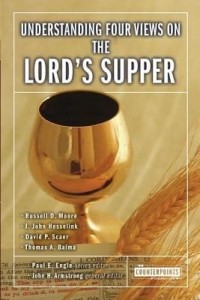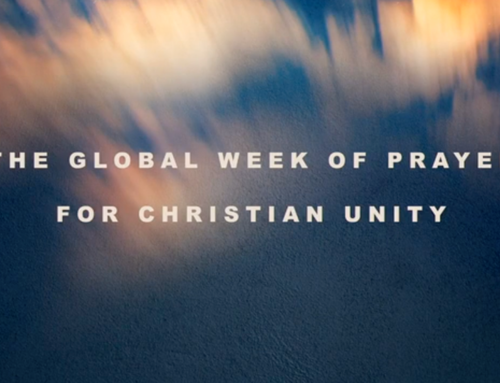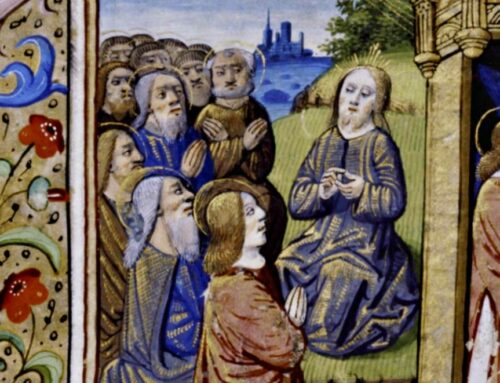 On Saturday, July 11, the Focolare Movement hosts a special day (within their larger annual event called Midwest Mariapolis) on Christian unity and the role of the eucharist. I am leading a workshop, along with my good friend, Fr. Thomas Baima. There is also a prayer service for unity that evening. You are welcome to register, or just come and sign up on site, as a one-day guest. If you live in Chicago, Indianapolis or West Michigan this is an easy drive. I hope to see some of you share in this event and please say “hello” to me if you come. You are welcome to attend more of this wonderful event but the Saturday activities are the ones I am actively sharing in as a leader.
On Saturday, July 11, the Focolare Movement hosts a special day (within their larger annual event called Midwest Mariapolis) on Christian unity and the role of the eucharist. I am leading a workshop, along with my good friend, Fr. Thomas Baima. There is also a prayer service for unity that evening. You are welcome to register, or just come and sign up on site, as a one-day guest. If you live in Chicago, Indianapolis or West Michigan this is an easy drive. I hope to see some of you share in this event and please say “hello” to me if you come. You are welcome to attend more of this wonderful event but the Saturday activities are the ones I am actively sharing in as a leader.
Mariapolis 2015, “The Eucharist in a Communitarian Spirituality”
The Focolare Movement’s annual meeting, the “Mariapolis,” will include an exploration of the Eucharist and its connection to ecumenical dialogue. The public are invited to two events that will take place at Valparaiso University’s Harre Union on Saturday, July 11, 2015
Workshop: Harre Union University Ballroom, 4:15 – 5:45–“Understanding the Lord’s Supper”
At his Last Supper, Christ told his apostles, “Do this in remembrance of me” (Lk 22:19). Each time they celebrate the Lord’s Supper, Christians fulfill Jesus’ request. But that very supper by which we remember him also is a sign of our brokenness. How can we better understand both our brokenness and our hope for unity through the meal that Christ has given us?
That is the question that will be addressed by two noted ecumenical figures: Rev. John Armstrong, Minister of Word and Sacrament in the Reformed Church and author of Understanding Four Views on the Lord’s Supper (Zondervan, 2007), and Rev. Thomas Baima, Provost of the University of St. Mary of the Lake, the major seminary of the Roman Catholic Archdiocese of Chicago.
There will be a picnic dinner with musical entertainment on the veranda in front of the Harre Union at 6:00. There is a modest cost for dinner and registration.
Ecumenical Prayer Service: Harre Union University Ballroom, 8:00 – 9:00
Rev. Armstrong will lead a service of song, witness, and prayer focused upon 1 Corinthians 10: 16-17: “The cup of blessing that we bless, is it not a sharing in the blood of Christ? The bread that we break, is it not a sharing in the body of Christ? Because there is one bread, we who are many are one body, for we all partake of the one bread.” All are welcome.









A Unique Dialogue on the Eucharist and a Prayer Service for Unity: On Saturday, July 11, the Focolare Movement… http://t.co/wDd9Dwsque
Michael Daly CJ liked this on Facebook.
It would sure be nice if I could make this. But I can’t. I look forward to hearing about it.
Ed Holm liked this on Facebook.
Sandy Crown Brinks liked this on Facebook.
No doubt there will be interesting discussion. However, according to Trent, those who deny transubstantiation are cursed. This was reaffirmed at Vatican 2. I wish for unity wherever possible, but the magisterium has bound all Catholics to this view and very clearly articulated it, so I suppose the main question is not of nuance and dialogue, but whether Protestants/evangelicals (of whom I am) will repent and turn from our accursed position.
Derek,
You have completely misunderstood both Trent and Vatican Council II. While we do not share a common Communion table we do share a common baptism and this is Catholic doctrine, not my own. I work with Catholics very closely and we openly agree that we still disagree on some matters we continue to discuss but we do not condemn each other with the “anathemas” you reference. These anathemas have been quite seriously misunderstood on both sides since the 16th century.
I would be happy and prefer to be wrong here! I don’t know what I’ve stated that differs from Trent’s declarations. Among other things, the doctrine of transubstantiation is so precious to the councils of Trent that they declared “it is indeed a crime the most unworthy that they should be wrested, by certain contentions and wicked men, to fictitious and imaginary tropes, whereby the verity of the flesh and blood of Christ is denied”. I’m not sure where the ambiguity is in this statement, especially because they were responding to the Reformers and their denial of transubstantiation? If a person is wicked for teaching something that denies ts, then the desired outcome is that the person and anyone influenced by the Christ-denying ideas should repent, isn’t it?
I am totally in favor of dialogue and discussion on this and other areas of dispute. I even ASSUME that most or all of us on either side can have a thoughtful and respectful dialogue when we disagree about this and related matters. I think it is more or less assumed, at least since V2(!), that no one wants to return to the kind of vitriol and hyperbole that made genuine dialogue impossible for literally centuries.
I guess my main point is that it seems like the RCC has actually spoken quite clearly and strongly. We are free to agree or disagree, but we can’t both be right. At least one of us is wrong. Therefore the matter is only going to get resolved when first, one side or the other repents/admits wrong. Am I missing something here?
Lastly, if the meaning of anathema is obscured to modern listeners/readers, I’m sure you’re at least partly right. But I’m curious to know what word or phrase you might replace it with in order to help modern audiences understand their intended meaning?